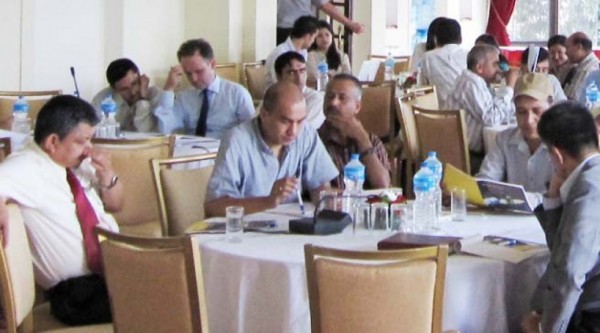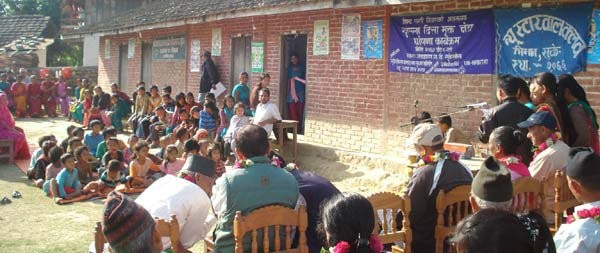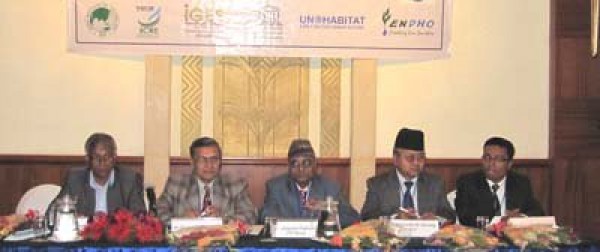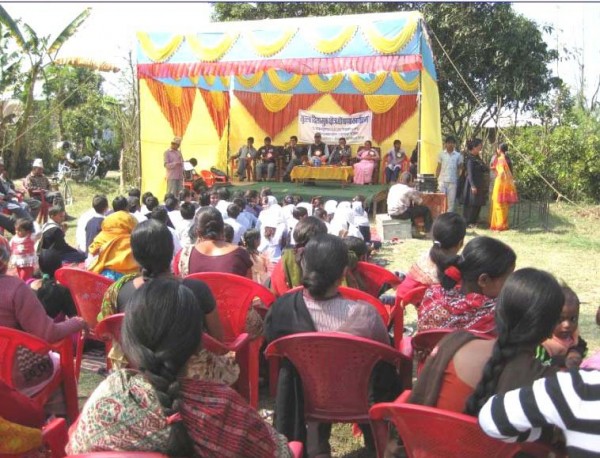Nepal: the best achiever among UN HABITAT Supported Countries

“Impact Study carried out so far in UN-HABITAT supported countries has shown Nepal as the best achiever in urban water and sanitation (WATSAN) perspective”, stated Andre Dzikus, Chief,Water and Sanitation Section II, Water, Sanitation and Infrastructure Branch, UN HABITAT, Nairobi. Speaking at a dissemination workshop in Lalitpur on 21 July, Dzikus has shared this opinion. The workshop had been organized by UN HABITAT Water for Asian Cities Programmes to share the findings of the study carried out to evaluate the impact of WAC programme in urban WATSAN sector in Nepal. The programme has been receiving support from Water and Sanitation Trust Fund (WSTF) – managed by the Water, Sanitation and Infrastructure Branch (WSIB) under the Human Settlements Financing Division of UN-HABITAT. Based on the Nepal Country Impact Study report, Dzikus also mentioned about the tangible impacts that WAC programme did in last five years in urban WATSAN sector in Nepal. He believed that these achievements will help to increase the investment of donor countries and agencies in the country. He stressed on the need to strategize the community involvement approaches to optimize the impacts of available WSTF. He appreciated WAC partners for their praiseworthy contribution in gender and poverty mapping, which has been appreciated and brought in use by the key ministries in Nepal. Krishna Prasad Acharya, joint secretary, Ministry of Physical Planning and Works expressed his commitment to take initiative to replicate the successful WATSAN practices in new urban areas of Nepal. He said that WATSAN organizations have done an appreciable job in urban WATSAN sector, which has increase coverage of safe drinking water and improved sanitation in urban areas. At the programme, Dr. Roshan Raj Shrestha, UN HABITAT Regional Chief Technical Advisor, South Asia stressed that the urban water and sanitation should be given compatible priority along with other development sectors to achieve remarkable improvement in WATSAN in urban areas. According to him, the UN-HABITAT has been running various WATSAN projects under its WAC Programme in 35 municipalities, 18 small towns and 8 peri-urban area of Nepal. These projects have conducted various WATSAN activities with focus on pro-poor WATSAN governance, urban water demand management, integrated urban environmental sanitation, and income generation for the urban poor. He informed that the programme has directly benefited more than 232 thousand people improving their living standards with remarkable improvement in water supply and sanitation in the programme areas. Sharing about the partnership between the Department of Water Supply and Sewerage (DWSS) and UNHABITAT in building the capacity of local agencies and communities in small towns of Nepal, Gajendra Thakur,Director General, DWSS suggested UN-HABITAT to allocate their support in hardware components of the project so that WATSAN services could improved and made easily accessible to urban poor. Dr. Mahendra Subba, Deputy Director General, Department of Urban Development and Building Construction informed that the department has completed poverty mapping in 10 municipalities with support of UN-HABITAT. He urged the development organizations to design their development plans based on these poverty maps to benefit poor and marginalized groups dwelling in these municipalities. He also informed that the department has allocated separate budget to continue poverty mapping in other municipalities, too.









